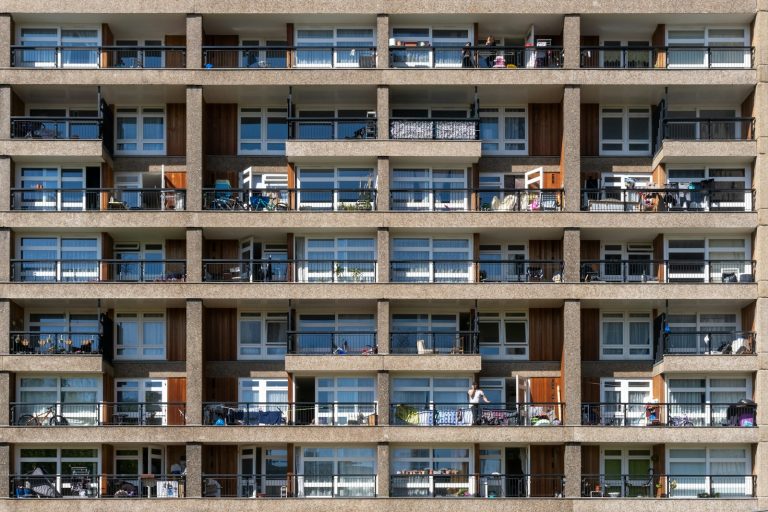Renting a property in the UK can be a new experience, especially if you’re unfamiliar with the country’s rental market and regulations. Whether you’re moving to the UK for work, study, or a fresh start, understanding the rules for renting a property is crucial. This guide will help you navigate the process and ensure you’re well-prepared for your new home.
1. Understanding Tenancy Agreements
What Is a Tenancy Agreement?
A tenancy agreement is a legal contract between you (the tenant) and your landlord. It outlines the terms and conditions of your rental, including the rent amount, the length of the tenancy, and the responsibilities of both parties.
Types of Tenancy Agreements
- Assured Shorthold Tenancy (AST): The most common type of rental agreement in the UK. It usually lasts for six months to a year but can be longer. After the initial fixed term, the tenancy can continue on a rolling basis.
- Fixed-Term Tenancy: This type of agreement runs for a set period (e.g., 12 months). You’re committed to paying rent for the entire period unless the agreement allows for early termination.
- Periodic Tenancy: A rolling agreement that continues after the fixed term ends, usually on a monthly basis.
Key Points in the Agreement
- Rent: How much you’ll pay and when it’s due.
- Deposit: The security deposit amount and the scheme it’s protected under (more on this below).
- Responsibilities: Both landlord and tenant duties, including maintenance and repairs.
- Notice Period: How much notice is required to end the tenancy (typically one to two months).
2. Deposits and Deposit Protection
Security Deposit
When you rent a property, you’ll typically pay a security deposit, usually equivalent to five weeks’ rent. This deposit covers any potential damage to the property or unpaid rent.
Deposit Protection
In the UK, landlords are legally required to place your deposit in a government-approved deposit protection scheme within 30 days of receiving it. The three main schemes are:
- Deposit Protection Service (DPS)
- MyDeposits
- Tenancy Deposit Scheme (TDS)
At the end of your tenancy, the deposit should be returned to you, minus any agreed deductions for damages or unpaid rent. If there’s a dispute, the deposit protection scheme offers a free resolution service.
3. Right to Rent Checks
What Is the Right to Rent?
As part of the UK’s immigration controls, landlords are required to check that all tenants have the legal right to rent in the UK. This process involves verifying your immigration status.
What You Need
- Passport or National Identity Card: To prove your identity and nationality.
- Visa or Residency Permit: If applicable, to prove your right to reside in the UK.
- Share Code: If you have digital proof of immigration status (e.g., EU Settlement Scheme), you’ll need to provide a share code to the landlord.
Landlords must check your documents before the tenancy begins and keep copies for their records. If you’re staying in the UK long-term, make sure your documents are up to date.
4. Rent Payments and Utility Bills
Rent Payments
Rent is usually paid monthly by direct debit or standing order. It’s important to ensure your payments are on time, as late or missed payments can lead to eviction.
Utility Bills
In most cases, you’ll be responsible for paying utility bills, including gas, electricity, water, and council tax. Some properties include bills in the rent, so it’s important to clarify this with your landlord before signing the tenancy agreement.
- Council Tax: A local tax that contributes to public services like waste collection and road maintenance. The amount varies depending on the property’s location and value.
5. Tenant and Landlord Responsibilities
Your Responsibilities
- Paying Rent: On time and in full.
- Maintaining the Property: Keep the property clean and report any repairs needed to the landlord.
- Respecting the Neighbours: Follow any rules in the tenancy agreement regarding noise and communal areas.
- Allowing Access: Landlords may need to enter the property for inspections or repairs, but they must give you at least 24 hours’ notice.
Landlord’s Responsibilities
- Property Maintenance: The landlord must ensure the property is safe and habitable. This includes repairs to the structure, heating, and water systems.
- Deposit Protection: As mentioned, the landlord must protect your deposit in a government-approved scheme.
- Providing Safety Certificates: Landlords must provide an annual gas safety certificate and an energy performance certificate (EPC) for the property.
6. Ending the Tenancy
Giving Notice
If you want to end the tenancy, you’ll need to give your landlord written notice. The notice period is usually one month if you’re on a rolling tenancy, or as stated in your fixed-term agreement.
Final Inspection
Before moving out, the landlord will inspect the property to check for any damage beyond normal wear and tear. Ensure the property is clean and in good condition to avoid deductions from your deposit.
7. Common Issues and How to Address Them
Rent Arrears
If you’re struggling to pay rent, contact your landlord as soon as possible to discuss payment options. Ignoring the issue could lead to eviction.
Disrepair
If the property needs repairs, report them to your landlord in writing. If the landlord fails to make necessary repairs, you can seek help from your local council or a tenants’ rights organization.
Disputes
If you have a disagreement with your landlord, try to resolve it amicably. If this isn’t possible, you can seek advice from Citizens Advice or a tenants’ association.
Final Thoughts
Renting a property in the UK involves understanding your rights and responsibilities as a tenant. By familiarizing yourself with the rules and regulations, you can ensure a smooth and positive rental experience. Always read your tenancy agreement carefully, communicate openly with your landlord, and seek advice if you encounter any issues. With the right knowledge, you’ll be well-prepared to find and enjoy your new home in the UK.

Leave a Reply